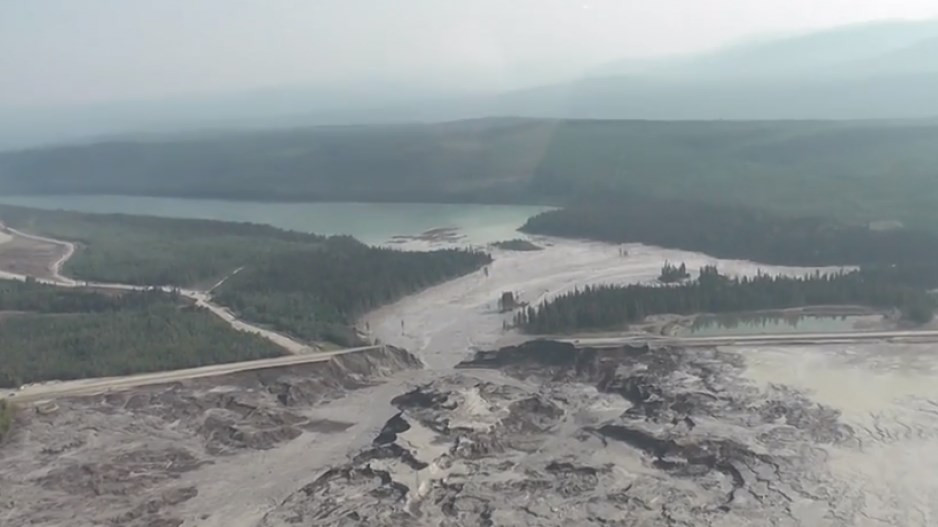Companies planning to build new mines in B.C. will need to consider alternatives to wet tailings ponds, under new regulations prompted by last year’s failure of the Mount Polley tailings pond.
Letters have gone out to eight companies with mine proposals that are in various stages of the environmental assessment process advising them they will need to meet the new requirements. All but one – the Sukunka coal mine project near Chetwynd – are copper or gold mine projects.
The new regulations announced March 19 by the Environmental Assessment Office are based on recommendations made by a special engineering panel struck to identify the cause of the failure.
The panel concluded that the Mount Polley tailings pond’s collapse was the result of a design flaw.
A layer of clay-like glacial material beneath the dam’s foundation gave way. A contributing factor was a decision by engineers to increase the steepness of the dam’s slope. The collapse could not have been anticipated with increased inspections, the panel found.
Concerns about the volume of water stored behind the dam was at first identified as a possible factor. While the panel found the pressure from the water in the tailings pond did not trigger the dam’s collapse, it exacerbated the flow of slurry into local waterways.
Among the recommendations the panel made was that alternatives to wet tailings ponds be considered for future mines. Most mines in B.C. use tailings ponds, where the mine waste is stored under water.
Dewatered tailings that are dry-stacked is one alternative, and is used mainly in dry climates. Storing tailings underground is another alternative for underground mines.
Dry-stacking is an alternative that may not always be a viable option in B.C. due to its high levels of precipitation. But under the new regulations, those alternatives must still be considered for new mines
Should a company decide a wet tailings pond is most appropriate, it will have to demonstrate why it is the preferred option. It will need to conduct technical and economic evaluations of all the options considered.
Letters have gone out to companies for the following projects advising them they will need to meet the new requirements: Spanish Mountain (gold), Ajax (copper-gold), Blackwater (gold), Harper Creek (copper-gold), Kemess (copper-gold), Schaft Creek (copper-gold-molybdenum), Sukunka (coal).



